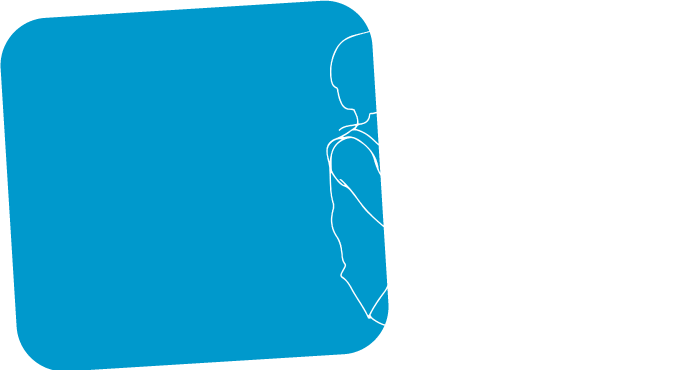FOR YOUNG PEOPLE
Are you a young person on the autism spectrum? Do you have concerns about further studies and learning to live independently? Do you need information and coping mechanisms to help you in your everyday life?
The pages for young people contain information about autism and the life transitions mentioned above. You will learn to understand yourself better and make the most of your strengths in life and take care of your wellbeing. You can also practise the skills and readiness you need with the help of gamified exercises and various applications either independently or together with someone else.
The experiences of other young people on the autism spectrum can empower you and give you tips for your everyday life. You can find more things to read in the material bank.

I’m here for you. Think about situations where you need someone to walk beside you.
Taking small steps forward together!
BECOMING INDEPENDENT – FACING A CHANGE
Youth is in many ways a significant time of life. Choosing a profession and going on further studies coincide with detaching from your parents and developing your personal identity. The transition into adulthood is a major life change for any young person, and many young people on the autism spectrum need special support and guidance at this stage.
You should keep in mind that every young person matures at their own pace, and the readiness to become independent and study is acquired individually – Are you already able to identify your skills and strengths? How about the things you need support with? Who could you discuss your future and your concerns with?
It is important to plan your independence process based on your individual readiness and wishes. You should start preparing for your new phase of life by anticipating what it will bring. Speaking about the upcoming change may help make it more concrete and alleviate any fears and uncertainty.
“Changes are stressful for everyone, but for us young people on the autism spectrum they can be particularly stressful.”
Despite careful preparation and planning, changes often involve elements that raise your stress level, where especially the senses and sensory overload play a significant role. A higher stress level makes it more difficult to adapt to new things and situations and to cope with them. Situations that did not cause any problems before may start to feel difficult, even overwhelming, in life transitions. Stress can, at its worst, reduce your functional capacity and wellbeing.
Taking care of your wellbeing is essential for coping in everyday life and studies. Regular meals, getting enough sleep and exercise, and relaxing and doing something meaningful form the basis for wellbeing and prevent strain. Good daily routines and creating a rhythm for meaningful free time and studying help you take control of your life. Identifying your strengths and making the most of them also makes you feel better and help you look forward to the future with confidence.
Discussing your wishes and dreams with your friends and family and support network help you make plans for the future. It becomes easier to learn new skills and other things needed in the new phase of life when you gain experiences of success and build a stronger self-esteem. Cooperation with a good, working support network helps you face new challenges and achieve a sense of security.
“Be patient. Remember that practising skills is like a marathon, not a sprint!”
Your independence signifies a big change and giving up something not only for you, but also for your parents. Your parents are perhaps used to supporting you daily and taking care of your matters. Giving up this task may frighten them as well. It is likely that your parents’ support, help and encouragement will continue to be important to you. However, you may also need professional support as you become independent.
You should remember that everyone faces challenges in a new life situation and you may also experience disappointments. You can still prepare for the future by developing your readiness and skills and by learning to ask for help when needed.
I’m here for you. Think about situations where you need someone to walk beside you.
Taking small steps forward together!

